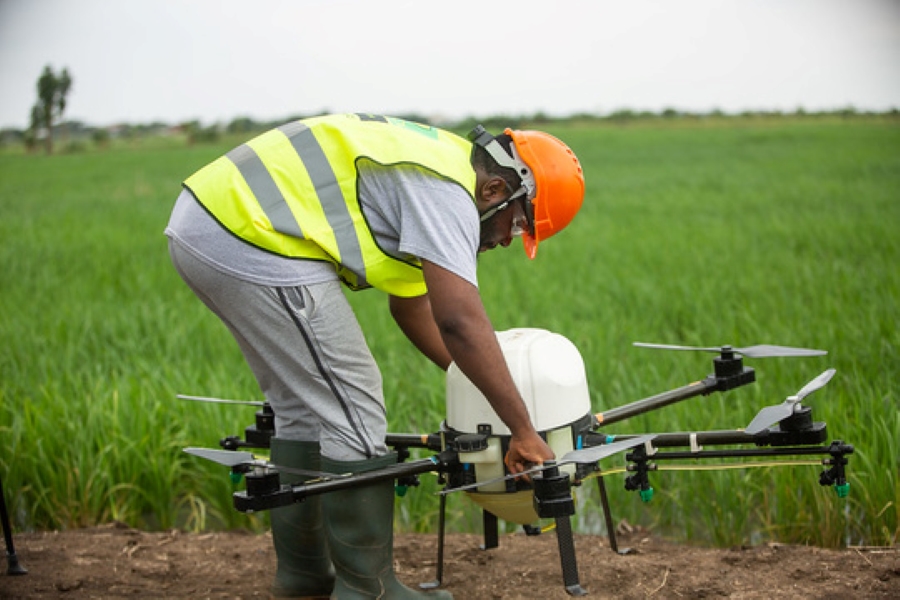Officials and delegates at a conference on agricultural technology have called for its accelerated adoption across Africa to boost productivity, ensure food security, and empower farmers, particularly the youth.
“Farmers are the primary source of data, and crucially, they are supposed to own the technologies that generate it. This emphasizes their fundamental role and direct involvement in both data collection and the adoption of technological solutions,” said Aggrey Ambali, board chair of the African Agricultural Technology Foundation (AATF), at the formal opening of the African Conference on Agricultural Technology (ACAT) in the Rwandan capital of Kigali on Tuesday.
“We know that agricultural technologies possess transformative potential to drive economic growth and improve food security,” he said.
Cutting-edge technological advancements in areas such as digital farming and biotechnology are already demonstrating promise in enhancing productivity, reducing costs, minimizing post-harvest losses, and empowering farmers, Ambali said.
However, he said, the pressing challenge lies in translating this vast existing knowledge into concrete actions at the policy level and operational level, and ultimately reaching the last mile to benefit farmers directly.
Former Nigerian President Goodluck Jonathan said Africa stands at a historic crossroads as the whole world continues to struggle with food insecurity, anchored on unutilized land, limited use of innovative technologies, and fragmented markets.
Africa, as a continent rich in fertile land, is crucial for those involved in agriculture and livestock farming to invest in modern technology, he said, adding that governments should support them in bringing their produce to markets.
Jonathan emphasized the important role of financial institutions in facilitating young people’s access to investment opportunities in agriculture by making it easier for them to obtain loans with low interest rates.
Rwandan Prime Minister Edouard Ngirente urged Africans to integrate technology into agriculture by empowering young innovators, mitigating risks with insurance and climate-resilient seeds, and expanding digital farming tools to enhance food security and sustainable growth.
“This event builds on the success of its inaugural conference held two years ago, bringing us closer to a smarter, more sustainable agriculture,” he said. “As we gather here today to discuss agricultural technology, this conference should not be another conversation. We are here for solutions. Each person in this room — farmers, policymakers, researchers, and innovators — has a role to play in shaping the future of our agriculture.”
Ngirente said the future of agriculture depends on ensuring that every farmer has access to reliable and sufficient inputs, precision farming tools, and real-time market data, among others.
“Agriculture remains the backbone of our economies, employing over 60 percent of the population and contributing approximately 23 percent to Africa’s GDP (gross domestic product). However, despite the vast potential of our continent’s land and human capital, many African farmers continue to face significant production challenges. These include climate conditions, outdated agricultural practices, limited access to markets, and inadequate financing,” he said.
To address these barriers and secure the future of agriculture in Africa, Ngirente stressed that there is a need to leverage technology and innovation as essential drivers of its transformation.
“To achieve this, we need to integrate technology and innovation across our efforts to transform the sector. Indeed, technology and innovation are essential pillars of modern agriculture and are no longer optional,” he said.
The ACAT conference, themed “NextGen Ag-Tech Solutions for Africa’s Farmers,” runs through Thursday. It has brought together more than 800 participants from around the world.
ACAT is one of Africa’s premier forums for promoting cutting-edge agricultural technologies and practical policies that enable a more efficient, inclusive, and resilient agriculture sector, organizers said. Enditem
Source: Xinhua
Share Us



